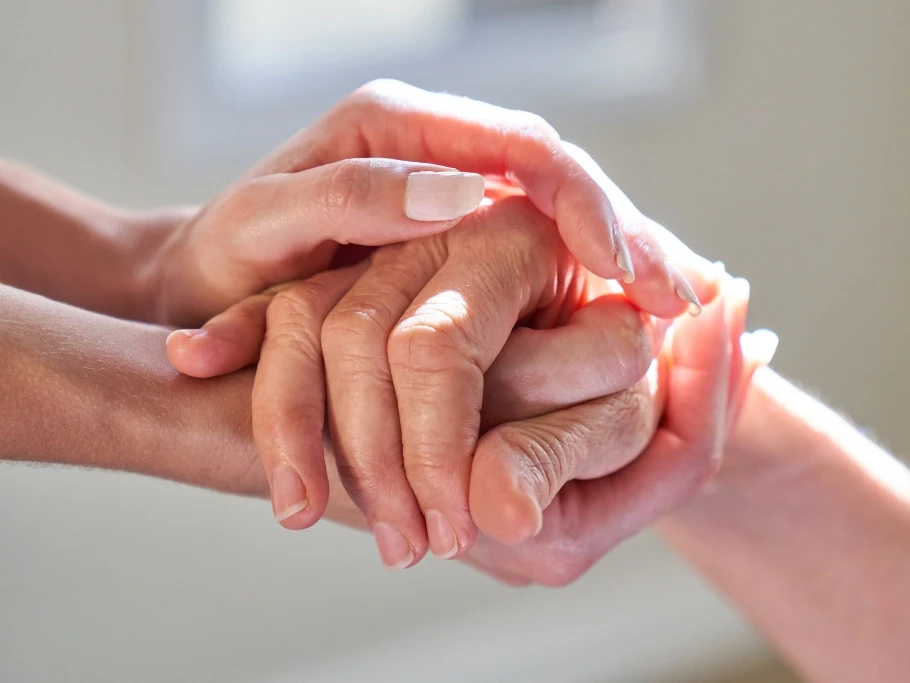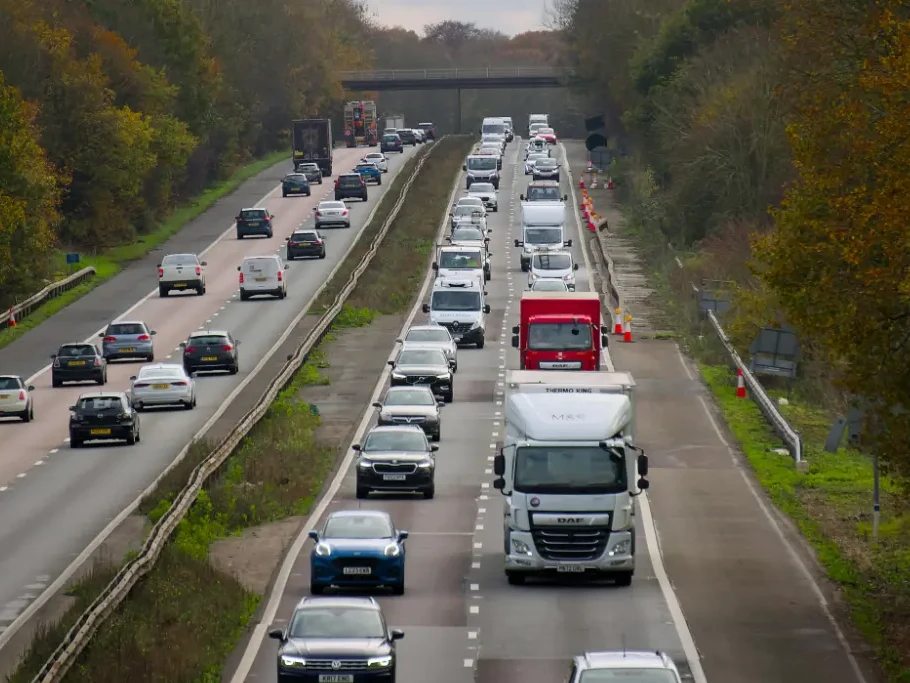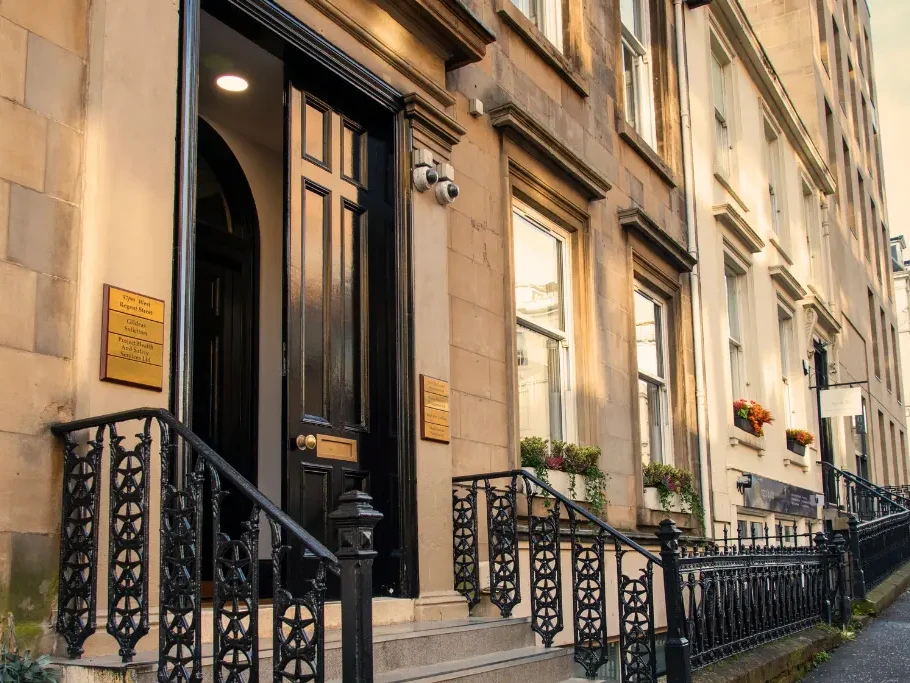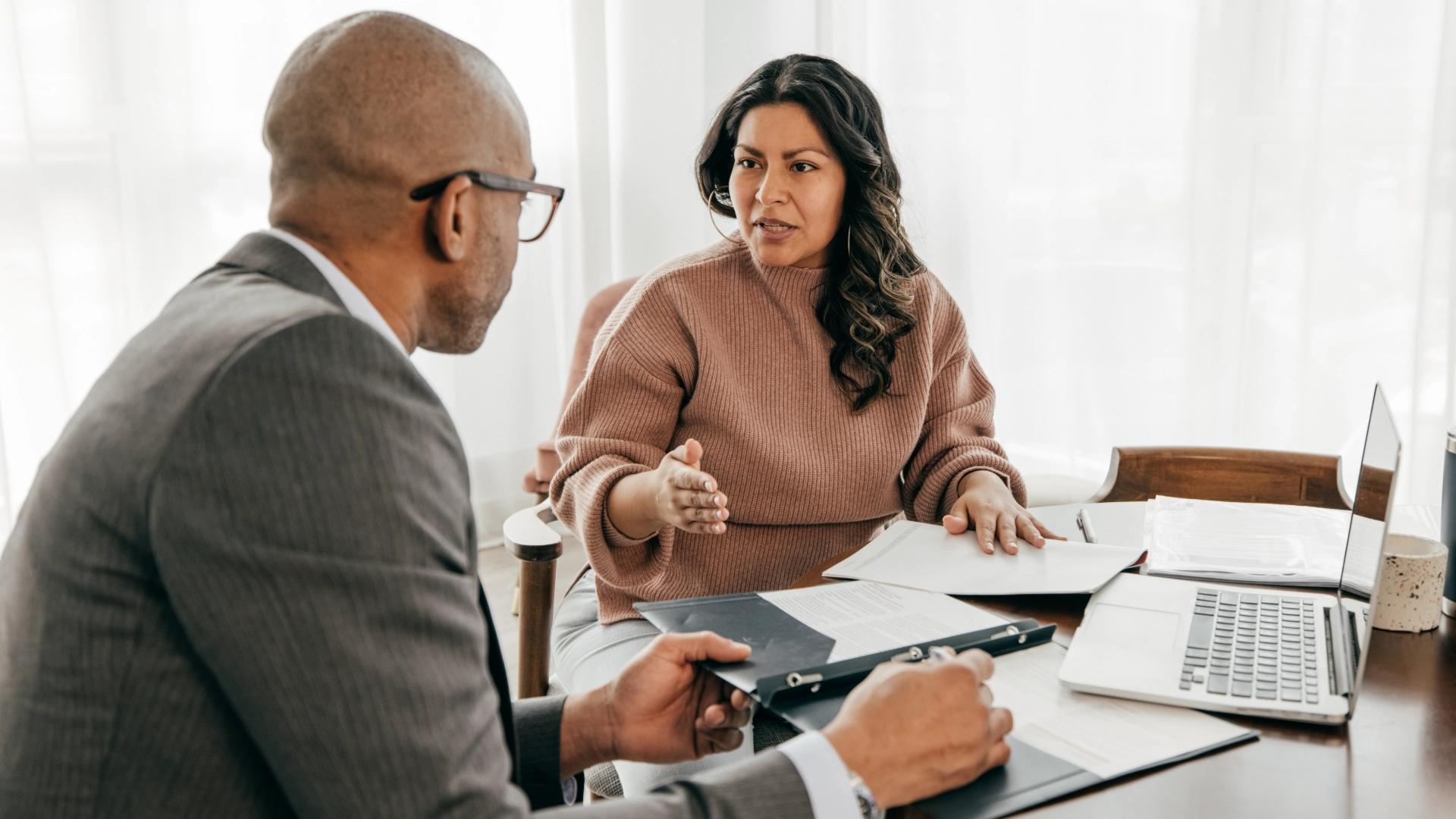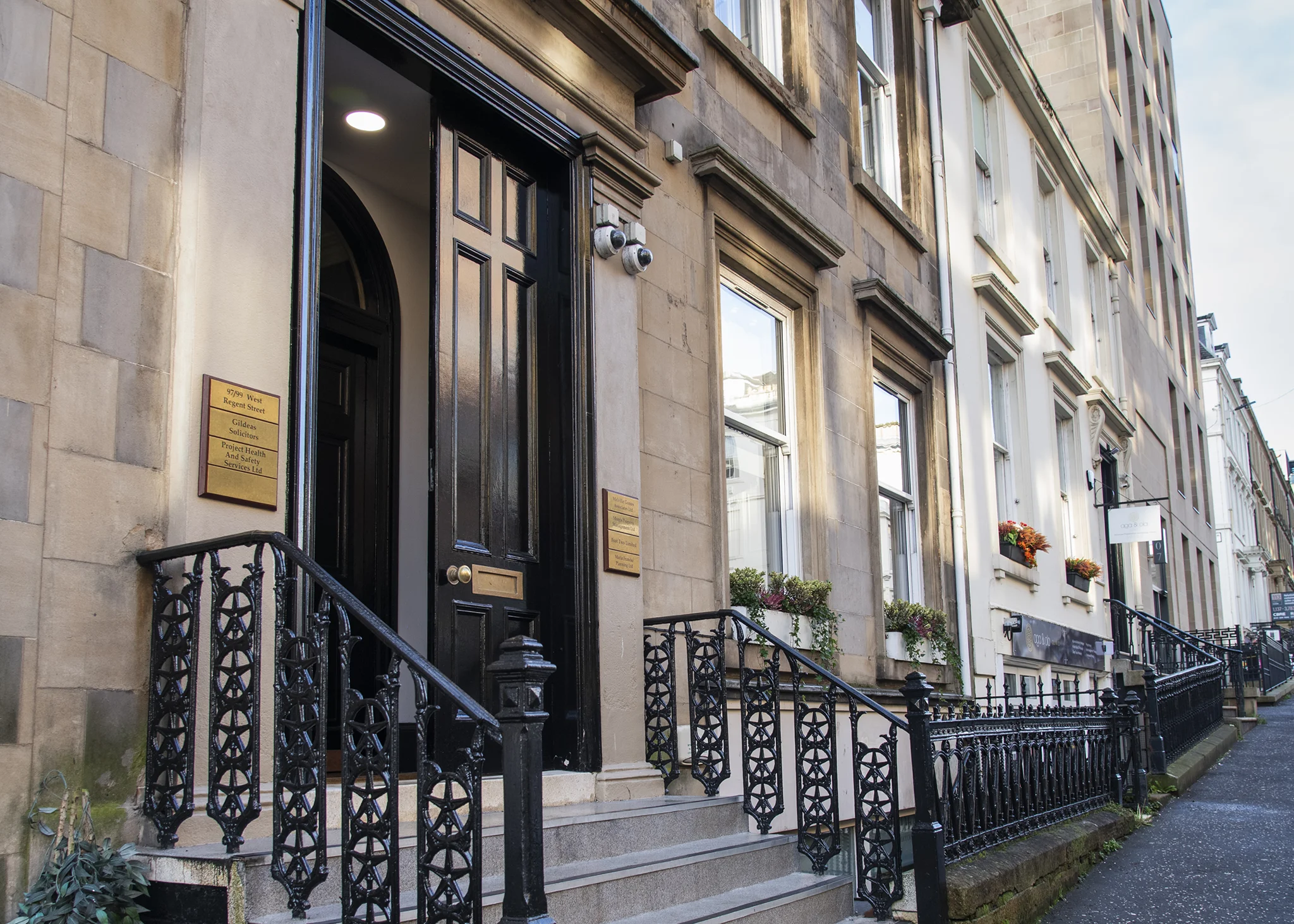Mitigation: Could You Lose Out On Compensation Without Realising It?
- Home
- Archive by Category "Guides"
Share this article
If you’ve been injured in an accident, the last thing you want is to lose out on compensation because of a technicality.
But that’s exactly what can happen if you don’t take ‘reasonable steps’ to reduce your losses – something the law calls mitigation.
In this article, we’ll explain what mitigation means, why it matters to your personal injury claim, and how Gildeas Solicitors can help make sure you get the compensation you deserve.
What Is Mitigation In A Personal Injury Claim?
Mitigation means taking steps to reduce the severity of your losses after an accident as far as reasonably possible. This includes your finances and expenses, as well as how serious your injuries are.
The main aim of personal injury law is always to put the claimant back into the position they would have been in if they were never injured.
Whilst the Damages (Scotland) Act 2011 provides a way to recover financially after suffering an injury, it comes with the condition that claimants should take steps to reduce their losses as much as possible.
If you don’t do this, the Court could refuse to offer compensation for the financial losses that could have been avoided – potentially reducing your overall settlement
What Does This Mean In Practice?
Our job as your solicitors is to help you get the maximum compensation you deserve following an accident. We do this by collecting evidence such as medical records, receipts, payslips, and more to support the expenses that you’ve incurred.
The law states that you have a duty to keep those expenses to a ‘reasonable’ level. This can be tricky as each case is different – what might be reasonable in one claim won’t be reasonable in another. This is why the law asks you to act ‘reasonably’.
Basically – have you used common sense in your decision making during the aftermath of the accident and throughout the claim process.
Where Does Mitigation Come Into Play?
Seeking medical attention and treatment
The law states that you should try to reduce your injuries as much as you can. This means, as much as possible you should try to:
- Seek medical attention as soon as possible after the accident. For example attending your GP, calling NHS 24, or calling an ambulance.
- Recover as quickly as you can. You should try to engage with all treatment options available, e.g., medication, physiotherapy, CBT, or other medical treatments.
Returning to work
Losing your earnings due to being off work can make up a significant portion of your claim. The law requires that you try to reduce these losses where possible, for example:
- Taking on different or lighter duties, e.g., in a less physically demanding role
- Working from home
- Reducing hours, e.g., working part time
You should return to work as soon you’re medically fit and able to do so – a doctor or medical expert should advise on this. If a doctor renders you able to return to work but you don’t and you continue to lose earnings, you might not be able to recover these in your claim. In serious accidents, you might need significant time off work or you might not be able to return to work at all. Under these circumstances, the law requires that you look for alternative employment where appropriate.
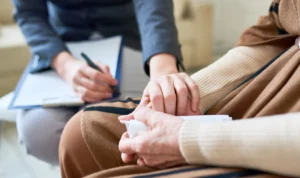
A real life example
In a recent Gildeas case, our client Mr C was a full-time carer for a man with long-term complex additional support needs.
In the job for over 10 years, it was physically and mentally demanding. After the accident, Mr C was unable to return to this role due to serious injuries to his shoulder, coupled with a serious mental health condition following the accident. He was ultimately diagnosed with depression.
Alongside his care job, Mr C had previously taken on work as a motorbike instructor before the accident. An independent employment expert was consulted in the claim who concluded that Mr C would be better off financially in a customer service role, but Mr C wanted to return to his bike instructor work.
Gildeas argued that retraining and looking for new work wouldn’t be appropriate given Mr C’s mental health diagnosis. The judge decided this was a reasonable choice and the claim was awarded in his favour.
Travel and vehicle use
If you can’t drive following your accident, you should try to mitigate your losses in this way too. For example:
- Driving with breaks in the journey or delaying a journey until roads are quieter, etc.
- Opting to use public transport instead of taxis where you can.
- If your vehicle was damaged, having it repaired as soon as possible.
- Using another vehicle available to you instead of hiring a car – e.g., if your partner or family member has a vehicle you can drive.
- Where possible, opting to get items repaired instead of replaced, such as bike helmets, gear, car seats, damaged mobile phones, etc.
How We Can Help
Our job as your solicitors, or as the ‘Pursuer’ in the claim process is to negotiate with the other side to agree on a settlement, so we’re required to obtain as much evidence as possible to support every loss you incurred.
Naturally we don’t want you to be judged as having acted unreasonably.
The job of the other side, or ‘Defender’ is to establish if and where you did mitigate your losses.
How we can support you to mitigate your losses:
- Discuss available medical treatment options, such as physio or CBT.
- Consult to obtain independent evidence from experts, e.g., medical experts, vehicle assessors, or employment experts
- Recommend trusted repairers or vehicle hire
What Happens If I Don’t Mitigate My Losses?
If it’s judged that you failed to mitigate your losses, this will be considered in any settlement offer.
This means you could be offered a lower amount than what you might have originally been able to claim.
Final Thoughts
It’s important for any claimant to take reasonable steps to avoid unnecessary costs and to reduce the impact of their injuries.
However, it’s for the other side to establish if you failed to do this.
The key question asked will be whether you acted reasonably or not in the aftermath of the accident.
The process might seem complex, but with proper evidence and guidance from a solicitor, you can ensure that all aspects of your recovery will be properly accounted for.
Still have questions?
You might be interested in our other claim guides:
What Happens Next In Your Personal Injury Claim
How Long Do I Have To Make A Claim?
How Much Will I Get? And 9 Other Questions About Personal Injury Compensation
Gildeas Solicitors is a recognised law firm specialising in personal injury claims, supporting you throughout Scotland from our offices in Glasgow and Edinburgh. We’re passionate about what we do, whilst putting our clients’ interests first. That’s why we make personal injury personal.
Considering our services? Call our dedicated team today on 0141 331 6070.
More to explore
How Much Will I Get? And 9 Other Questions About Personal Injury Compensation
- Home
- Archive by Category "Guides"
Share this article
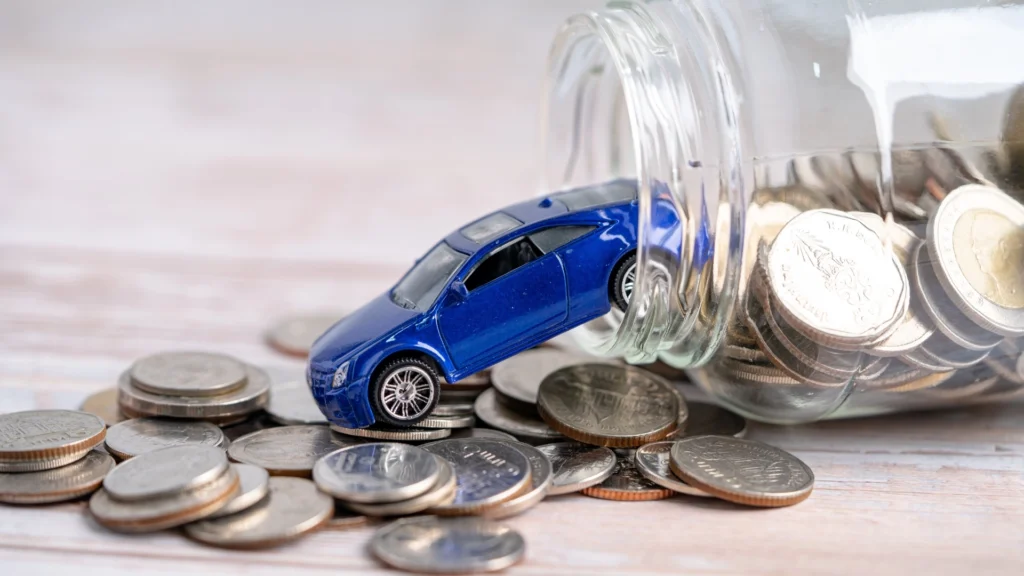
We know that one of the biggest concerns people have when thinking about making a personal injury claim is money. That’s why we’ve written this practical guide covering everything to do with injury compensation in Scotland – from how fees work, to how compensation is calculated and when you’re likely to receive it.
Whether you’re beginning a claim or just researching, read on for straightforward, honest answers to some of the most common questions we’re asked.
I can’t afford legal advice. Can I still make a personal injury claim?
Yes, you can. No one should have to go without legal support due to financial barriers. That’s why we operate on a no-win, no-fee basis, meaning you can focus on your recovery whilst we fight for your compensation.
What does ‘no win, no fee’ really mean – is there a catch?
Nope, there’s no catch. Here’s how it works –
We’ll start by having an open conversation about your situation to see if your claim has a realistic chance of success. If we don’t believe it can be taken forward, we’ll tell you straight away – and you’re welcome to seek a second opinion elsewhere if you choose. We’d recommend visiting the Law Society to find a solicitor who can help.
If you decide to proceed and your claim is successful, a small success fee will be deducted from your compensation. If the claim doesn’t succeed, you won’t pay a thing.
We believe this is a fair and balanced way to support access to justice, giving your case the focus, preparation, and backing it needs without upfront costs.
How much compensation can I expect to receive for my injuries?
This is one of the most common questions we get asked, and understandably so. Unfortunately, there’s no simple answer.
How much you receive depends on many factors – the seriousness of your injuries, how long you suffered for, and whether you’ve taken time off work, to name just a few.
And in law, the small details matter. For example, which particular area of your back was injured could make a difference in how your claim is valued.
All of these various factors are considered when we value your claim. Once medical evidence and supporting documentation are gathered, your solicitor will be able to give you a more accurate estimate. Until then, it’s difficult to put an exact figure on your claim – which we understand can be frustrating.
I was told I’d get £10,000 in compensation from someone else. Will I actually get that?
Any personal injury claim must be thoroughly investigated – so if you’ve been quoted a figure before your case begins, it’s probably too good to be true.
You might have seen ‘personal injury claims calculators’ online – but where do these figures come from? They’re usually based on the Judicial College Guidelines used by solicitors. These look at historical injury claims and provide lawyers with working estimates based on the seriousness of an injury, age of the claimant, and more.
The guidelines are set by courts in England & Wales – Scots law is different, so using an online claims calculator will likely give you an unrealistic valuation. In any case, it’s best to ask a qualified personal injury solicitor if you have questions about how your case was valued.
How much of my compensation will I actually receive – are there any hidden costs?
We have a professional and ethical duty of care to our clients, which includes being transparent about costs – so you shouldn’t be surprised by any deductions in your final settlement.
There are certain things that need to be paid whether the claim wins or loses, these are known as outlays. Outlays need to be paid to run the claim and can include things like the cost of independent medical reports, expert reports, court administration fees, etc.
You will be told about these at each stage. Any of these costs that we can’t recover from the third party will be deducted from your compensation.
If your case is successful, you will likely be charged a success fee. Exactly how much will depend on the firm, but there is a threshold. The threshold is set by law, the Civil Litigation Act, as follows:
- A tiered cap of 20% applies for the first £100,000 of damages
- 10% for the next £400,000
- 5% for damages over £500,000
I can’t afford to wait until my case is finished. Can I get compensation now?
Sometimes, it may be necessary to award you part of your compensation before the case is finished. This is called an interim payment. Typically, these are granted when:
- Your injuries are serious and have significantly affected your life post-accident
- The other party has admitted responsibility
- There is a more urgent need for the compensation. For example, if you need medical specialists, ongoing care, adaptive equipment, have extensive travel costs or other significant expenses
- The amount you’ve requested is reasonable to the other party
It’s important to note that interim payments are taken off your final settlement amount. You should always discuss with your file handler if this is something you’re considering.
How long will it take to receive personal injury compensation?
Again, unfortunately there is no straightforward answer to this.
It all depends on how your case progresses. Since every claim is different, it’s difficult to predict exactly when it will be settled.
With minor injuries and smaller claims, the third party may accept fault, and the case can be resolved quickly. When this happens, we may receive a settlement offer early on – a few months after you contact us, for example.
Sometimes things come up that can delay the outcome, such as new evidence or legal processes which take time. For example, when calculating more complex factors such as your loss of earnings, etc.
Once a settlement offer is agreed, the third party has up to five weeks to process and send the compensation.
How will I receive my personal injury compensation?
We send settlement by enclosed cheque. Other payment methods may be available for a small fee – you can discuss these with your claim handler.
Do you get taxed on personal injury compensation?
No, there are laws which mean you don’t get taxed on personal injury compensation. This applies whether it’s a lump sum or if you received interim payments.
What you can expect moving forward
We understand how important it is to have clarity when it comes to legal costs, timelines, and compensation. You’ll never receive an unrealistic guarantee from us about the outcome of your case, and we’ll always aim to be clear about our fees, our process, and what you can expect to receive at the end.
Every case is different, and whilst we can’t guarantee the outcome, we can guarantee that your claim will be handled with professionalism, transparency, and care from day one.
Still have questions?
Check out these useful links:
Maximising Your Personal Injury Claim: A Step-by-Step Guide
Claiming Compensation For Care: What Every Injured Person Needs to Know
What Happens Next In Your Personal Injury Claim
Gildeas Solicitors is a recognised law firm specialising in personal injury claims, supporting you throughout Scotland from our offices in Glasgow and Edinburgh. We’re passionate about what we do, whilst putting our clients’ interests first. That’s why we make personal injury personal.
Considering our services? Call our dedicated team today on 0141 331 6070.
More to explore
Maximising Your Personal Injury Claim: A Step-by-Step Guide
- Home
- Archive by Category "Guides"
Share this article
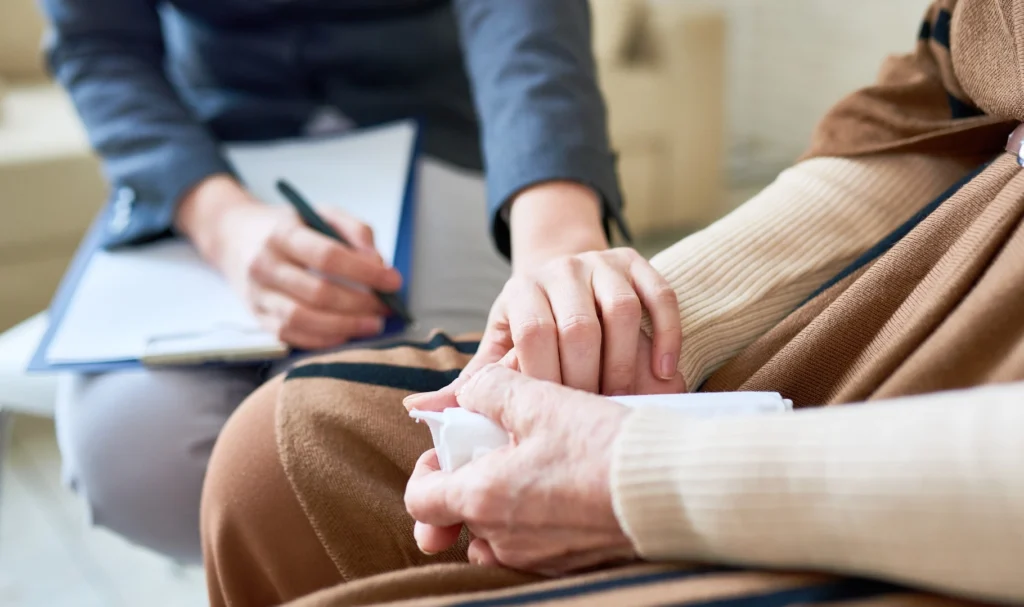
Thinking about making a personal injury claim? There are a few simple steps you can take to help make the process smoother and improve your chances of success.
At Gildeas Solicitors, we support clients across Scotland with clear, trauma-informed legal advice – and we know that when clients are informed and involved, it can make a real difference.
This guide offers practical advice on how you can help your personal injury claim from day one.
Communication During Your Personal Injury Claim
At Gildeas Solicitors, we believe that clear, respectful, and compassionate communication is at the heart of a successful personal injury claim.
We understand that being involved in an accident can be deeply distressing, whether it’s a road traffic accident, at work, or in a public place. The process of making a claim can feel like a lot, especially when you’re still coming to terms with what’s happened. That’s why we approach every case with sensitivity and care.
Good communication can make a big difference to your personal injury claim. At Gildeas, we want to make sure you feel informed, supported, and comfortable at every stage.
Here are some simple ways you can help make the process work better for you:
• Tell us how you prefer to be contacted
Everyone has different needs. If you’d rather receive updates by email instead of phone calls, or if text messages are easier for you, just let us know. We’ll adapt our approach to suit you.
• Let us know if you need more time
We understand that filling in paperwork or signing forms might not always be possible straight away, especially if you’re recovering or feeling overwhelmed. If you need extra time with anything, that’s completely fine – just keep us informed and we’ll work around you.
• Be open if you’re not ready to proceed
Starting a claim can feel like a big step. Sometimes clients begin the process and ultimately find that they’re not ready to begin a claim. If you’re not ready yet, or if you need some time to think things through, that’s absolutely okay. Let us know where you’re at, and we’ll be here whenever you’re ready to move forward.
• Know that you’re in safe hands
Our team includes specialist trauma-informed solicitors who are trained to recognise the emotional impact of trauma. We’ll always do our best to make the legal process feel safe and manageable, giving you the time and space you need to engage at your own pace.
• Ask questions if you need to
If something doesn’t make sense, or you’re unsure about a step in the process, please ask. We’re here to help you understand your claim, not confuse you with legal jargon.
What Evidence Do You Need to Support a Personal Injury Claim?
Strong evidence is one of the most important factors in the success of any personal injury claim. The more detailed and accurate the evidence, the better positioned we are to achieve a positive outcome on your behalf.
One of the most valuable things you can do to support your personal injury claim is to gather clear, detailed evidence. Here’s how to get started:
• Photographs: Take clear photos as soon as possible after the incident. This could include damage to your vehicle, the scene of the accident (e.g. potholes, wet floors, uneven pavements), and any visible injuries.
• Medical reports: Medical evidence is essential to support your claim. This might include hospital records, GP notes, or specialist assessments. Always seek medical attention, even if your injuries seem minor at first.
• Receipts and costs: If you’ve had to replace damaged items, such as motorbike leathers, glasses, a mobile phone, or children’s car seats – keep the receipts or take screenshots showing the item’s cost. These can be included in your claim.
• Witness details: If anyone witnessed the accident, get their contact information. Witness statements can add weight to your claim.
• Diary or notes: Keeping a short diary of your symptoms, pain levels, or how the injury has impacted your daily life can be helpful when assessing compensation.
Can Social Media Affect Your Injury Claim? Here’s Our Advice
During a claim, insurers and third-party solicitors may be scrolling too. Here’s how to stay smart on social media whilst your case is ongoing:
• What you post can be used in your case. A photo, location tag, or a comment could affect your case. If you’re making a claim, it’s worth thinking twice before posting anything that could be linked to your injury.
• Play it safe. Keep your account private, or at the very least avoid posting about your injury. Being cautious now could make a big difference later.
• Your credibility matters. If something on your profile makes you worry about your case, don’t just remove it – it might be seen as suspicious. Always speak to your solicitor first as they can help you handle it properly.
Stay Engaged With Your Claim: What You Can Expect From Us
When you choose Gildeas Solicitors, you can expect a personal injury firm that listens, supports, and works hard on your behalf. As your claim progresses, staying engaged and informed will help everything move more smoothly. Here’s what you can expect from us -and how you can stay involved along the way.
From your first conversation with us, we’ll guide you through each stage of the claims process with clarity and care. We’ll explain your rights, keep you informed of progress, and make sure you understand what’s happening at every step.
Keep us updated if your condition changes and respond to any requests for information when you can, it helps us keep your case moving. Our solicitors will approach your case with sensitivity and respect, recognising that this may be a difficult time for you.
We’re here to reduce the stress – not add to it – and we’ll always act in your best interests. You can rely on us to be professional, approachable, and committed to achieving the best possible outcome for your claim.
Want to know more?
Find more top tips and answers to common questions:
How Long Do I Have to Make A Personal Injury Claim
What Happens Next In Your Personal Injury Claim
Find our FAQs here
Gildeas Solicitors is a recognised law firm specialising in personal injury claims, supporting you throughout Scotland from our offices in Glasgow and Edinburgh. We’re passionate about what we do, whilst putting our clients’ interests first. That’s why we make personal injury personal.
Considering our services? Call our dedicated team today on 0141 331 6070.
More to explore
Take Control of Your Claim: A Step-by-Step Guide to Choosing a Solicitor
- Home
- Archive by Category "Guides"
Share this article
Choosing the right personal injury solicitor can feel overwhelming, especially if you’ve never needed legal support before. We understand that after an accident the last thing you need is more uncertainty.
Yet the firm you choose can make a real difference to your experience and the outcome of your claim. So how do you know who to trust?
To help you make an informed decision, we’ve outlined some key factors to consider when selecting a personal injury solicitor.
How client feedback can guide you in choosing a solicitor
When you’re looking for a solicitor, recommendations are where you may start your research. Reading client reviews is the best way to get a feel for what a solicitor is really like before you get in touch. It can be reassuring to hear directly from people who’ve been in a similar situation and see how their experience went.
At Gildeas, we’ve been helping clients get the compensation they deserve for over 35 years – and we’re proud of the feedback we receive. Our testimonials reflect the care and commitment we put into every case.
You’ll find reviews on our website and social media, which can help you decide if we’re the right fit for you.
Experience matters when choosing a solicitor
Whether it’s a cycling accident or an accident in public, we know how difficult going through an accident can be. So you’ll want to know whether any potential solicitor you choose has the right expertise for your type of claim, and if they have the experience to handle more complex legal matters.
At Gildeas, we’re proud to have a team of recognised professionals, including Law Society of Scotland accredited personal injury specialists and certified trauma-informed experts.
Many of our team have a particular focus – like our dedicated bike team, who are experienced riders themselves – bringing a real understanding to motorcycle and cycling claims.
Gildeas benefits from in-house counsel, including a Solicitor Advocate, which means we can represent clients in higher courts without needing to refer you elsewhere – helping to keep your case moving efficiently and consistently, every step of the way.
We also work closely with our trusted network of vehicle hire, repair, and accident management partners to make the claims process as smooth as possible.

Choosing a solicitor near you – does it make a difference?
It can be confusing to know the differences between a larger, national firm or one closer to home. Many offer a similar service, and for those unfamiliar with the legal industry, you may be tempted to go with a more familiar name. But when it comes to legal advice, the quality of service and accessibility often matter more than the size of the firm.
Bigger doesn’t always mean better
Choosing Gildeas offers a number of advantages over a national firm. Our contact centre is in-house, allowing us to maintain a consistent level of communication throughout your case. We also have a dedicated First Response Unit for new claims, meaning your enquiries are dealt with quickly and effectively.
Being local to the area offers a multitude of advantages. We have a deeper understanding of local defence solicitors, courts, and their processes. We also benefit from longstanding relationships with nearby medical experts and engineers.
There are numerous factors that can affect how long a case will take to settle. However, choosing a larger firm could mean your solicitors are dealing with a caseload that extends into the hundreds. A local firm offers a more client-centric approach, meaning more time is dedicated to you.
Understanding costs and fees when choosing a solicitor
No one should have to go without legal representation due to financial barriers. That’s why we operate on a no-win, no-fee basis, meaning you can focus on your recovery whilst we fight for your compensation.
But what does this actually mean, and how do you know you’ve chosen the right solicitor?
How does no-win, no-fee work?
First, we’ll have an initial chat about your circumstances to determine whether we’re able to pursue your claim. If we don’t think you have a case, we’ll let you know there and then – leaving you free to pursue with another solicitor should you wish to do so.
If you proceed and your case is successful, we’ll deduct a small success fee from the compensation you’re awarded. If your case is unsuccessful, you won’t be charged a thing.
In our view, this approach offers a fair route to justice, ensuring your case receives the careful attention, preparation, and financial support it deserves.
Are there any hidden costs with no-win, no-fee?
A good solicitor will be upfront about any costs associated with your case. This could involve things like interim payments of compensation, referral to rehabilitation services, or specialist engineers to provide evidence.
We believe in complete transparency from the get-go.
You will never receive an unrealistic guarantee from us about the outcome of your case. And we’ll always endeavour to be clear about our fees, our process, and what you can expect.
We welcome any questions you may have regarding fee arrangements. Please give us a call or contact your file handler to discuss.
Factor in communication when choosing a solicitor
Consistent communication should be a priority for any good legal team. We understand that an accident can be a difficult experience, so regular updates can make a significant difference in bringing you peace of mind – particularly if you’re still recovering from your injuries.
At Gildeas Solicitors, we make personal injury personal. But what do we mean by this?
We tailor our communication around your needs. Whether it’s as simple as sending you digital or paper forms, if you’d prefer a home visit rather than a phone call, or whether you’d like your partner to be your main point of contact – we’ll do our best to ensure you feel prioritised from start to finish.
Everyone’s preferences are different. With that in mind, it’s a good idea to be clear about the level of communication you expect from your solicitor at the beginning of your case.
Get in touch with personal injury solicitors in Glasgow and Edinburgh
Choosing a personal injury solicitor doesn’t have to be a difficult process. Taking a little time to research about the firm will give you a better understanding of who is best to represent you.
At Gildeas, we combine decades of experience with a personal, compassionate approach, helping clients across Scotland get the support and results they deserve.
If you’ve been injured in an accident and need straightforward advice from a team you can trust, we’re here to help.
Get in touch with our personal injury solicitors in Glasgow or Edinburgh today for a no-obligation chat.
Gildeas Solicitors is a recognised law firm specialising in personal injury claims, supporting you throughout Scotland from our offices in Glasgow and Edinburgh. We’re passionate about what we do, whilst putting our clients’ interests first. That’s why we make personal injury personal.
Considering our services? Call our dedicated team today on 0141 331 6070.
More to explore
Motorcycle Safety Isn’t Optional, It’s Essential: Expert Tips Every Rider Should Know
- Home
- Archive by Category "Guides"
Share this article
Starting your journey as a motorcyclist is exciting. Whether you’ve just completed your CBT or a seasoned rider after some time away, May’s Motorcycle Safety Awareness Month is the perfect time to refresh your knowledge and prioritise safety.
At Gildeas Solicitors, we have experienced motorcycle riders within our legal team. We understand that keeping good habits and having up to date knowledge can prevent injuries and even save lives.
Owning a motorbike offers freedom and enjoyment, but it also requires some responsibility. Riders are far more exposed than car drivers and often less visible on the road, so being prepared and well informed can reduce the risk and ensure you enjoy each journey to the fullest.
Keep reading for our must-know safety tips every rider should follow.
Take Training Seriously
The Compulsory Basic Training (CBT) course is just the beginning. For those looking to build confidence and skill, further training can be invaluable.
RoSPA and other trusted providers offer advanced riding courses which teach you to handle different road conditions, assess hazards, and make safer decisions. These courses are especially useful if it’s been some time since you completed your CBT, or you’re returning to riding after an extended break.
Tip: Consider booking an advanced training session each year. It keeps your skills sharp and gives you more control on the road.
Prioritise Visibility
Many motorbike accidents happen because drivers simply don’t see the rider. Visibility should be one of your top priorities every time you ride.
To mitigate this, choose to wear bright or reflective clothing, especially when riding at night or in low light. Use dipped headlights even during the day to make yourself more noticeable. Fluorescent jackets, reflective tape and high visibility helmets can all improve how easily other drivers see you.
Tip: Don’t assume drivers have seen you. Make eye contact where possible and always position yourself to stay out of blind spots.
Invest in the Right Safety Gear
Investing in the right gear does more than meet legal requirements. It can reduce injuries, make riding more comfortable, and give you added confidence on the road.
Safety isn’t a luxury; it’s an absolute necessity. Always wear a high-quality helmet that meets British safety standards. Choose gear with built in armour for your shoulders, elbows, knees and back. Boots and gloves designed for motorcycling are also essential for protection and grip.
Visiting a dedicated motorcycle shop where trained staff can help with fit and recommendations can make all the difference.
Tip: Buying gear that’s AAA certified can give you added peace of mind. With AAA certification, this signifies the clothing has met or exceeded rigorous standards set by industry experts and organisations, such as material quality, impact protection, abrasion resistance, and ergonomic design.
Check Your Bike Regularly
Routine maintenance is essential for staying safe on the road. Before each ride, check your brakes, lights, oil, tyre pressure and chain tension. All of this can be done whilst you’re warming the engine, as you should always let the oil flow around the engine before moving off. If anything feels off, don’t ignore it.
Schedule regular servicing by a qualified mechanic and keep a record of your maintenance history. This can also support your case in the event of an accident.
Tip: Simple checks that take a few minutes can make a massive difference to your safety. Follow the BOLTS system for quick checks:
Brakes – Check both front and rear brakes before setting off.
Oil – Check the oil level on your bike with the dipstick or through the sight glass.
Lights – Check the lights work properly. Do you have any panel lights out? Do you have a spare for the headlight or tail light? Both are easy to replace, and we advise to carry spares.
Tyres – Check the tyre pressure according to the manual, but a ballpark figure of about 30psi is often normal. Check the tread depth, and if there are any splits or nails.
Steering – Check that the steering moves freely side to side, that there are no cables hindering it, and that it doesn’t feel loose or notchy as this indicates bearing wear.
Suspension – Put some weight on the front and then the back, see the suspension moving properly and then check there is no oil around where the shiny shaft goes into the seal.
Ride Defensively
Many road users won’t anticipate your movements or understand how quickly a motorbike can accelerate. Always ride as if others can’t see you or may make sudden decisions.
Maintain a safe following distance and avoid weaving through traffic. Be cautious at junctions and roundabouts, where many accidents involving motorcycles occur.
Tip: Watch for clues from other vehicles, such as wheels beginning to turn or drivers shifting in their seats. These signs can help you anticipate their next move.
Understand the Road Conditions
Scotland’s roads can be unpredictable. From potholes and loose gravel to changing weather and sharp bends or country roads, riders unfortunately need to stay alert at all times.
To mitigate this, ensure you leave plenty of time to slow down in wet or icy conditions and avoid sudden braking. Rural roads, especially in the Highlands and Borders, may have blind corners or livestock crossings, so take extra care.
Tip: Always adjust your speed and riding style based on road and weather conditions, not just the speed limit.
Know Your Legal Rights
Even with the best preparation, accidents can still happen. If they do, knowing your rights is crucial.
At Gildeas Solicitors, we specialise in supporting motorcyclists following accidents. We can help you understand whether you are entitled to compensation and guide you through the legal process with dedication, compassion, and experience.
Conclusion
Starting out on two wheels can be one of the most rewarding decisions you make, but it comes with responsibility. Motorcycle Safety Awareness Month is a time to commit to good habits, proper equipment, and ongoing training.
The more you invest in your safety now, the more confident and prepared you’ll be – whatever the road brings.
Need Legal Advice After a Motorbike Accident?
If you or someone you know has been involved in a motorcycle accident, contact Gildeas Solicitors today. We offer expert legal advice tailored to riders and can help you get the compensation and support you deserve.
Gildeas Solicitors is a recognised law firm specialising in personal injury claims, supporting you throughout Scotland from our offices in Glasgow and Edinburgh. We’re passionate about what we do, whilst putting our clients’ interests first. That’s why we make personal injury personal.
Considering our services? Call our dedicated team today on 0141 331 6070.
What Happens Next In Your Personal Injury Claim
- Home
- Archive by Category "Guides"
Share this guide
We know making a personal injury claim can feel overwhelming. Waiting for an update on your case can feel frustrating, and legal terms can be confusing.
Our team have broken down the claim process below to help give you practical support and peace of mind.
In this guide, we’ll cover everything you need to know about what happens in your case:
- The first steps
- Establishing what happened
- Making an evaluation of the case
- Building the case
- Medical evidence
- Negotiations
- The court process
- Settlement and receiving damages
The first steps
- Whether you contacted us first or have been referred, we’ll complete initial forms to get your details. We can do this over the phone or send them out via email or post.
- We’ll also send our T&Cs and require a form of ID – this could be a utility bill, bank statement, as well as photographic ID such as your driving license or passport. These are required by law for us to comply with anti-fraud legislation.
- After we receive this and you’re still happy to proceed, we’ll then send you an official letter to say we’ve began the claim process. This is called an Intimation of Claim and is sent by email or post.
Establishing what happened
- We’ll ask your account of what happened in our first contact over the phone. We may ask questions such as whether the police attended, if there were witnesses, and if you went to hospital or attended the GP after the accident.
- We’ll then ask you to submit evidence of what happened. This could be photo/video evidence, (e.g., vehicle damage or dash cam footage).
Making an evaluation of the case
- We work on a no-win, no-fee basis. So depending on the information you’ve provided, we may know at this stage if your case has enough evidence to progress. If we’re unable to proceed, we will tell you at this stage.
- If we can proceed, we’ll begin to send enquiries to the third-party insurers (TPI) and any other relevant parties (E.g., the police, or in cases of uninsured/untraced drivers, the MIB). This is to find out what happened from their side and most importantly, to find out who was at fault for the accident.
Building the case
To further build the case, we attempt to collect as much information as possible. We will never attempt to settle your case without obtaining the correct evidence, so that you have as strong a claim as possible.
- After we’ve received vehicle damage photos – depending on the extent of the damage and the circumstances of the accident – we may ask for specialist opinion from an engineer. Their report will help to build our case and establish who was at fault. This can take some time to carry out a thorough assessment.
- There is usually a period of waiting at this point in the process as we build the case. It can take time to hear from the third party and other groups.
Medical evidence is crucial to the case
- We might ask you to sign a form to release your medical records. This is called a medical mandate. We do this to understand what the hospital or GP said about your injuries when the accident happened. These are especially important if the accident happened a while ago and you’re making a claim month or years down the line. Records can take some time to receive too.
-
- We might ask you to undergo a medical exam by an independent medico-legal specialist. Depending on your injuries and if you’re still recovering, we might wait until you feel better to do this, e.g., until you’re out of hospital.
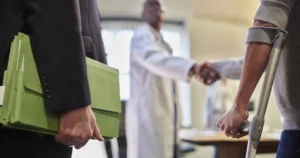
This is typical in any personal injury case and is done so we have an unbiased understanding of your injuries. The expert then provides a report to be used in your case. This can take a while for a number of reasons – e.g., appointment slots with the examiner, or the report could take time for us to receive.
- We might ask you to undergo a medical exam by an independent medico-legal specialist. Depending on your injuries and if you’re still recovering, we might wait until you feel better to do this, e.g., until you’re out of hospital.
- The examiner might make treatment recommendations depending on your injuries and how you’re feeling after the accident such as certain medication, or specialist help like physiotherapy or counselling. Some of this might not be available on the NHS, so we can refer you to our trusted providers if you wish. These can also take time to organise, particularly if your injuries are more serious.
Negotiations begin
- Depending on the nature of the accident, we may not need extensive medical evidence. With minor injuries and smaller claims, the third party may accept fault, so the case can be resolved quickly. When this happens, we may receive a settlement offer early on. This is called a pre-med offer.
- If we receive a pre-med offer, we will give you our advice and take your instructions on what to do next – either to accept it or reject. If you choose to decline the offer, we’ll give you our legal opinion and then begin negotiating with the third party on your behalf.
- There are many factors which can affect your ongoing claim at this stage. We may require further evidence, or new elements could arise in the claim. For example, when calculating more complex elements of the claim such as your loss of earnings, waiting on responses from the third party, etc.
- In more complex cases, there may be other factors which could affect the claim process – for example, in claims with an untraced driver, or serious injury cases where your life has been significantly changed as a result of the accident. In any case, we’ll ensure you’re kept informed at every stage of the process.
The court process
-
- The majority of our claims never end up in court. In the unlikely event that they do, we will ensure that you and any witnesses are completely prepared.
- There are specific procedures for personal injury claims in Scotland, particularly with smaller claims. If your case goes to court, we will fully explain the process with you and what we expect the outcome to be.
Settlement and receiving damages
- Once you agree on a settlement offer, the third party has five weeks to process and send the compensation.
- We then deduct the costs of our fees and any other costs incurred from your case before sending you the final settlement.
You should contact your claim handler in the first instance if you would like to discuss your case or if you have any questions.
You can contact them via email or by calling 0141 331 6071 followed by their extension.
Got a general query? Fill out our contact form or call 0141 331 6070.
This list is not exhaustive and is intended as an informative guide to the process of making a personal injury claim at Gildeas Solicitors only. Our claims process will differ in every case, as it is entirely dependent on your individual circumstances.
We act only for the pursuer and take instructions from them on a no-win, no-fee basis.
Gildeas Solicitors is a recognised law firm specialising in personal injury claims, supporting you throughout Scotland from our offices in Glasgow and Edinburgh. We’re passionate about what we do, whilst putting our clients’ interests first. That’s why we make personal injury personal.
Considering our services? Call our dedicated team today on 0141 331 6070.
Litigation Friends: Claiming On Behalf of Someone Else
- Home
- Archive by Category "Guides"
Share this article
At Gildeas Solicitors, we’ve proudly represented clients in Scotland since 1989. In that time, we’ve seen a broad spectrum of circumstances which come up in the personal injury claims process.
Today, we’re focussing on what happens when a person is appointed to claim for someone else, also known as a ‘Litigation Friend’. Read on as we break down what a Litigation Friend is, why someone may need one, and how it affects the claim process.
When would somebody need a Litigation Friend?
If you want to use a solicitor, you must be able to ‘give instructions’. Giving instructions means informing what the solicitor should do and what decisions you’d like them to make in your personal injury case.
What is a Litigation Friend in a personal injury claim?
A Litigation Friend is a person who makes decisions on behalf of someone unable to manage their personal injury claim for themselves. They can make decisions on behalf of someone who is:
- In Scotland, a child under 16 years of age. In England and Wales, the threshold is children under 18 years of age.
- Someone over the age of 18 who has been found to lack the capacity to manage their claim. This might be due to illness, a disability, or for another reason.
- A person who has passed away during the claims process.
‘Manage’ is a broad term that includes: an understanding of the steps and risks involved in a personal injury claim, being able to make decisions during your claim, and giving instructions to your solicitor.
Who can be a Litigation Friend?
Anyone can be a Litigation Friend, so long as they can fulfil the role competently. The person must consent to be the Litigation Friend and be able to make decisions about the personal injury claim in a fair and considered way. An example of who might act on behalf of the person could be:
- Their parent or guardian.
- Their extended family member or friend.
- Their solicitor or professional advocate.
- Someone who has a lasting Power of Attorney.
When does the Litigation Friend stop acting on the injured person’s behalf?
The Litigation Friend will stop acting for them when the personal injury claim comes to an end. There are a few occasions when the injured person may choose to manage the claim before the case is settled. For example:
- When a child turns 16 and decides they want to manage the claim themselves.
- If a person regains capacity, for example when they have recovered from an injury or woken up from a coma.
What does a Litigation Friend need to do?
Key to the role is clear communication with the injured person. The Litigation Friend must always remember that they’re not a ‘client’ themselves, but they are acting on their behalf.
A Litigation Friend might be asked to:
- Sign or provide documents such as medical records
- Meet with solicitors and take advice when needed
- Make decisions about the case, such as agreeing on the amount of compensation offered
Points to note about Litigation Friends:
- A Litigation Friend is not the same as the client’s solicitor. It is simply the Litigation Friend who gives instructions to us.
- A Litigation Friend is not the same as a Power of Attorney or a Guardianship Order.A Litigation Friend is appointed to represent someone who lacks the capacity to do so in legal proceedings, like a child or an adult with a disability.A Power of Attorney is a specific legal document which appoints another person to make decisions on a person’s behalf regarding finances, property, healthcare, etc., typically when the person becomes unable to do so themselves.Basically, a Litigation Friend only acts within the context of a legal case such as personal injury, whilst a Power of Attorney can encompass a wider range of things across many aspects of life.
- When a claim is successful, the settlement is still paid to the client. There may be extenuating circumstances when a settlement is paid to the Litigation Friend, for example if the person has a Power of Attorney and holds financial responsibilities, or if the client is a child and doesn’t have a bank account. We take every step possible to ensure the injured person is the one who receives settlement funds.
In conclusion
The Litigation Friend is a crucial role in protecting the rights of those who are injured. By assisting those who may not have capacity, they support them to navigate a claim and make sure their voice is heard.
If you have a case which concerns any of the issues in this article, please contact our dedicated team and they will happily discuss if we can help. As trusted solicitors for over 50 years, we’ve supported thousands of clients to get the justice they deserve.
Got a question not covered here?
You might be interested in our other claim guides:
What Happens Next In Your Personal Injury Claim
How Long Do I Have To Make A Claim?
How Much Will I Get? And 9 Other Questions About Personal Injury Compensation
Gildeas Solicitors is a recognised law firm specialising in personal injury claims, supporting you throughout Scotland from our offices in Glasgow and Edinburgh. We’re passionate about what we do, whilst putting our clients’ interests first. That’s why we make personal injury personal.
Considering our services? Call our dedicated team today on 0141 331 6070.

